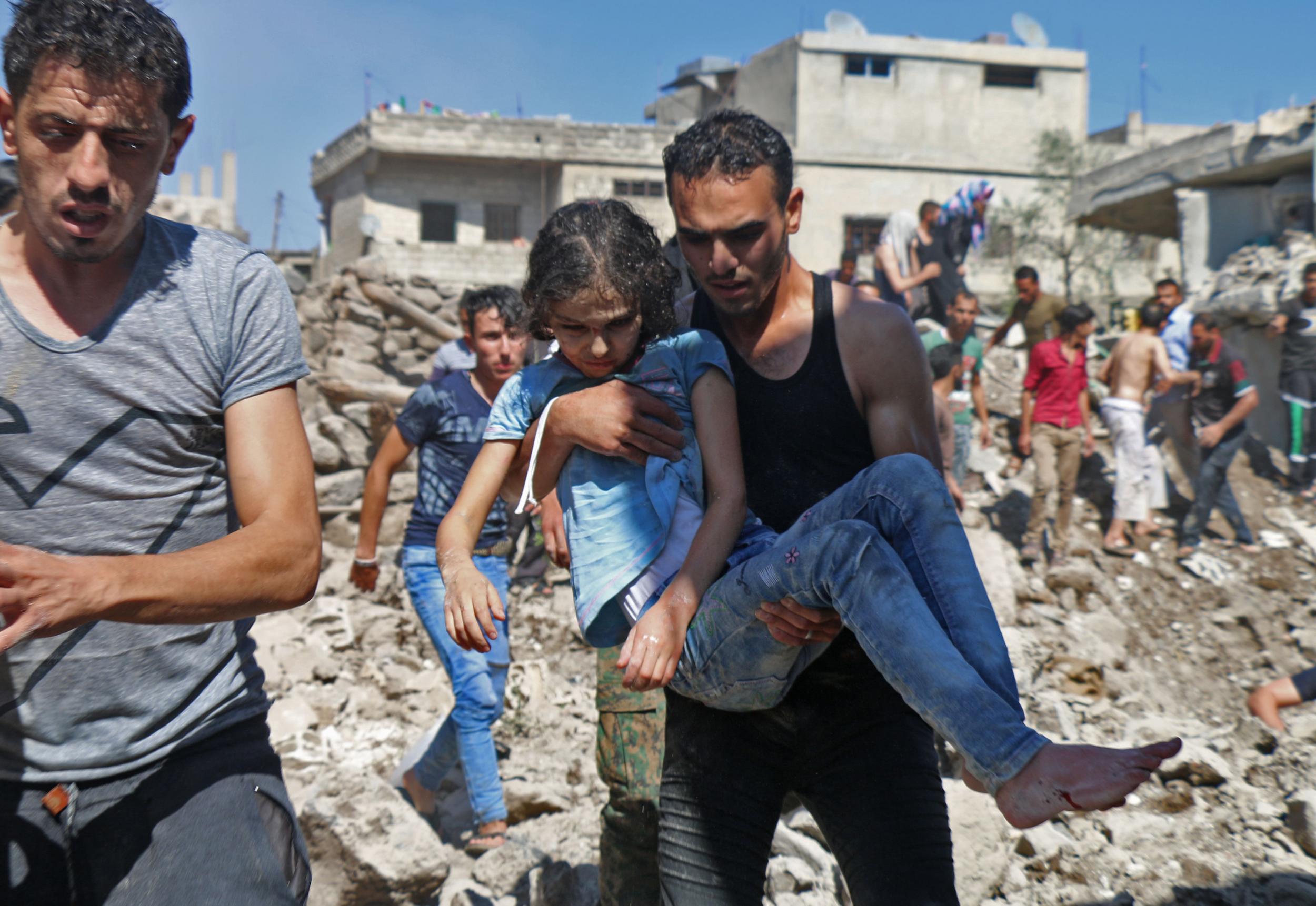Syria: 45,000 people displaced by fighting in Deraa as trapped civilians plead for halt to government assault
Assad forces mount huge attack on southern rebel stronghold despite de-escalation deal struck between opposition and government last year

Your support helps us to tell the story
From reproductive rights to climate change to Big Tech, The Independent is on the ground when the story is developing. Whether it's investigating the financials of Elon Musk's pro-Trump PAC or producing our latest documentary, 'The A Word', which shines a light on the American women fighting for reproductive rights, we know how important it is to parse out the facts from the messaging.
At such a critical moment in US history, we need reporters on the ground. Your donation allows us to keep sending journalists to speak to both sides of the story.
The Independent is trusted by Americans across the entire political spectrum. And unlike many other quality news outlets, we choose not to lock Americans out of our reporting and analysis with paywalls. We believe quality journalism should be available to everyone, paid for by those who can afford it.
Your support makes all the difference.Three hospitals have been bombed out of action and more than 45,000 people have fled their homes in Syria’s southern Deraa province as intense government airstrikes clear the way for a major assault on the opposition-held area.
The medical facilities in three towns east of the city of Deraa were hit in what were believed to be strikes carried out by Syrian president Bashar al-Assad’s Russian allies overnight on Tuesday, said UOSSM, a medical charity operating in opposition-held Syria.
Five hospitals have been targeted since the operation began on 19 June, according to UK-based war monitor the Syrian Observatory for Human Rights. Both Damascus and Moscow have repeatedly denied targeting civilian infrastructure.
A media activist in Deraa city told The Independent that Syrian helicopters and Russian fighter jets have flown over the area without stopping since.
“It scares me to think about what will happen next,” the activist said. “We are begging for Assad to stick with the [de-escalation deal]. There’s nowhere to go. The government of Jordan has closed the border and does not want anyone to enter.”
The operation has led to the deaths of at least 47 civilians and forced thousands of people to leave their homes in search of safety, according to the UN.
Most of the displaced have headed south to the nearby Jordanian border, although Amman has reiterated it will not open the border to refugees.
All crossings between the two countries have been closed since a bomb at a checkpoint killed seven Jordanian soldiers in 2016, and Jordan already hosts at least 630,000 Syrians.
On Wednesday rights groups called on the Jordanian government to honour its international obligations to people “in need of protection”.
“Jordan has done so much over the years to accommodate hundreds of thousands of refugees from Syria, but unfortunately the international community must rely on it to be generous once more,” Youri Saadallah, the Norwegian Refugee Council’s acting regional director, said.
“The fighting in Syria is squeezing people further and further south. They will eventually be left with nowhere else to turn,” he said.
“Jordan cannot be expected to take on the responsibility of accepting more refugees alone, however, and we call on the international community to urgently step up and provide significant additional support.”
While the area is part of a de-escalation deal between the government and rebels brokered by international powers last year, the recent violence mirrors several other government campaigns in recent months to retake rebel strongholds, such as Eastern Ghouta.
The US, which supports the opposition groups in the area, has reportedly backed away from previous commitments to the rebel side, warning them not to expect an American intervention to defend them from the army offensive.
Deraa is the last remaining rebel stronghold in the country apart from Idlib in the northwest.
Syria’s seven-year civil war has seen more than 500,000 people killed and driven half the pre-war population of 22 million from their homes.
Join our commenting forum
Join thought-provoking conversations, follow other Independent readers and see their replies
Comments